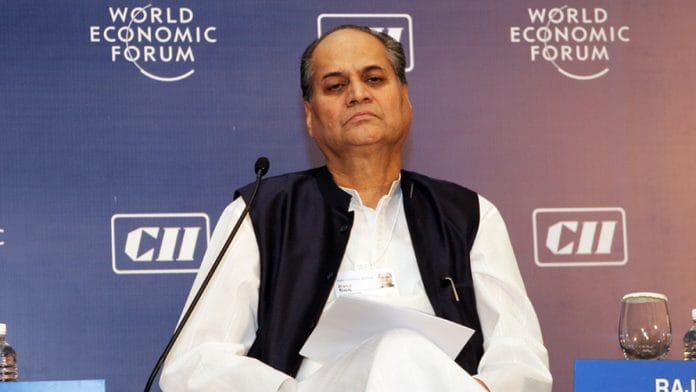A visionary who never minced words but also had a down-to-earth attitude—this is how Rahul Bajaj, the man behind ‘Hamara Bajaj’ is remembered.
Bajaj, who is credited for building the Indian two and three-wheeler industry, was never known to praise something on record, only to say the truth off the record. It’s a practice followed by the majority of business leaders of today.
The most prominent display of his forthright character was seen in 2019, during the ET Awards event in Mumbai. Addressing top leaders of the Narendra Modi government present on the stage—Amit Shah, Piyush Goyal and Nirmala Sitharaman—Bajaj asked questions on BJP MP Pragya Thakur’s remark on Nathuram Godse, mob lynchings and the fear among people to criticise the government.
Bajaj, who was also a former member of Parliament, asserted that he was born “anti-establishment”. “I have to live up to my reputation…It’s very difficult for me to praise anybody. I was not born that way. I have to be supportive of the poor, the disadvantaged,” he had said during the award function.
He pointed out that his grandfather Jamnalal Bajaj was like an adopted son of MK Gandhi. And whether the people on the dais may not like it, his name ‘Rahul’ was given to him by Jawaharlal Nehru.
Proud of his lineage and family’s contribution to the freedom struggle, during an acceptance speech for Shri Pravinchandra Gandhi Award for Excellence in Public Life in August 2012, Bajaj recounted that he too was threatened with arrest for producing scooters much in excess of Bajaj’s licensed capacity in the early 1970s. “I remember telling the MRTP Commission that going to jail for doing one’s national duty was not something that was unfamiliar to my family,” he had said.
Not just his grandfather, Bajaj’s father Kamalnayan Bajaj was also closely associated with Gandhi. For many years, he stayed at Gandhi’s Sevagram Ashram. Rahul Bajaj’s mother Savitri went to jail for participating in Quit India Movement. Bajaj was only four years old at the time.
Also read: If BJP leaders could speak like Rahul Bajaj, this is what they would tell Modi & Amit Shah
Advocate of economic reforms
During the chairmanship of Rahul Bajaj, the Bajaj Group of Companies grew from an automobile major to a prominent name in insurance and consumer finance and home appliances. An MBA from Harvard Business School, Bajaj was the recipient of many awards, including the Padma Bhushan and honorary doctorates from six universities. In his public life, Bajaj wore many hats, including the chairman of Indian Airlines and the board of governors of the Indian Institute of Technology, Mumbai.
Bajaj was one of the most vocal supporters of Indian industry. He also received a lot of flak for being a ‘protectionist’ when he lobbied against the opening up of the economy to multinational companies. However, in his biography, Rahul Bajaj: An Extraordinary Life, written by Gita Piramal, clarified that he was misunderstood.
“The whole idea got completely ultafied (twisted),” Bajaj had recounted. “I was shouting away in the 1980s for liberalisation but then in 1993, I became infamous. When I asked for a level playing field, everybody thought this was a euphemism for protection. All we were saying was that the government should enable us to face foreign competition. Nobody listened to me, not from the media or anybody else.”
Bajaj was an astute businessman and the success of the Bajaj Group is a testament to it, but he was also a prominent voice advocating for economic reforms and social responsibility. This is what set him apart. His contribution to India’s economic growth extends beyond his entrepreneurial success. Throughout his career, he fearlessly voiced his opinions on issues affecting the nation’s economic development, even when they were unpopular.
Echoing his thoughts on ‘businessmen in public life’ during his 2012 speech, Bajaj said, “Whether they desire or not, like it or not, businessmen, especially big businessmen, are in a way in the public life of any nation. Willy-nilly their decisions affect large numbers of people, be it as consumers, employees, shareholders or as large contributors to the economy. Their views and decisions on the economy matter. Also, since their businesses are impacted by government policies, be they macro or micro policies, they need to engage with the government at various levels.”
(Edited by Ratan Priya)






